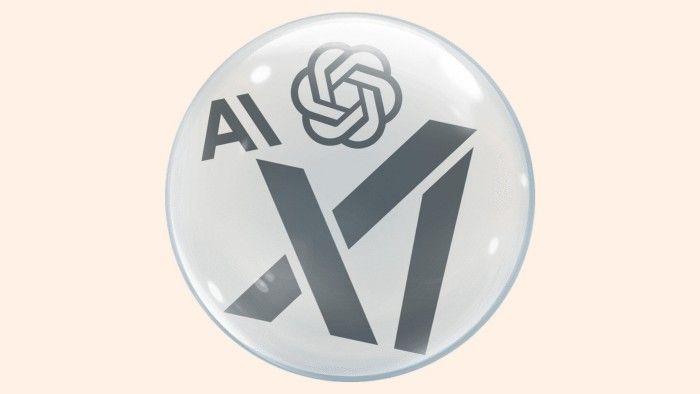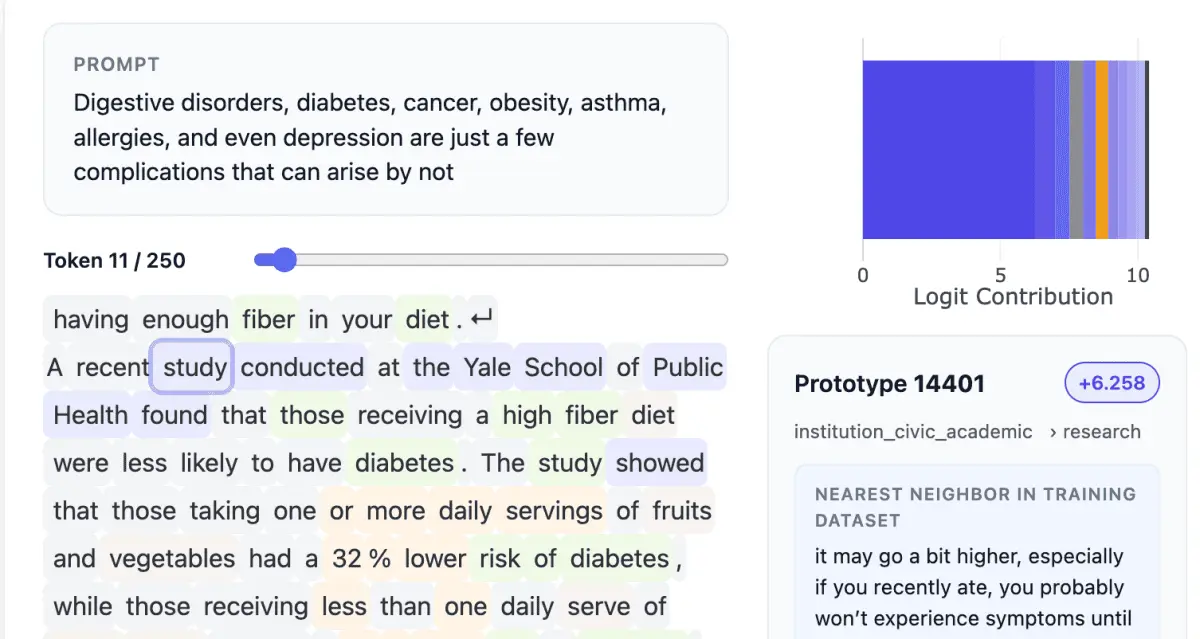Jamie Dimon's Reality Check on AI: Bubble Concerns, Job Disruption, and Long-Term Potential
2 Sources
2 Sources
[1]
Jamie Dimon gets real on AI, sees stocks 'in some form of bubble territory' | Fortune
Jamie Dimon has had a big week, as JPMorgan released its latest blockbuster earnings while holding forth as a leading (some would say the leading) voice on Wall Street. The investment bank CEO was in Washington DC on Tuesday, appearing at the Fortune Most Powerful Women conference with Editor-in-Chief Alyson Shontell, when the subject turned to everyone's favorite conversation in 2025: the AI bubble, or lack thereof. Dimon said that isn't quite right in his opinion, but also that he thinks "people should stop sticking their head in the sand" on the subject of job loss, reiterating a favorite recent refrain of his. "It will eliminate jobs," Dimon said, pointing out that so did tractors and cars, once upon a time. "It happens too fast," he said, referring to sudden, disruptive technological change. He urged society, government and business to "figure out how we can save jobs," whether that's retraining, a new form of income, early retirement, he said there's a need for "something. You can't just take all these people and throw them on the street ... making $30,000 a year when they were making ($150,000), you'll have a revolution." He insisted that the breakthrough is genuine and worth taking seriously. "AI itself is real," he declared, making clear that he sees the underlying technology as both transformative and enduring. "You should be using it," he said, speaking to any business that was listening. But he added a caveat, saying that back in 1996, "the internet was real" and "You could look at the whole thing like it was a bubble." Then he broke down the real difference that he sees: between AI, on the one hand, and generative AI, on the other. It's an important distinction, Dimon said, while adding that "some asset prices are high, in some form of bubble territory." Dimon compared today's AI exuberance to the early days of the internet, calling that "in total, a payoff," as Google, YouTube and Meta eventually emerged and proved durable. He said he was somewhat cautious about conditions in the current market, yet he urged people not to simply label all of AI as a speculative frenzy. "You can't look at AI as a bubble, though some of these things may be in the bubble. In total, it'll probably pay off." He said some projects won't be done the way they were announced, other will get the power they need, but he declined to discuss them in particular, urging a case-by-case evaluation of investments. Just days earlier, Dimon had warned in a BBC interview that he saw 30% chances of a correction in the stock market, calling himself "far more worried than others." Under Dimon's leadership, JPMorgan has invested billions in artificial intelligence and machine learning since 2012, with more than 2,000 staff now dedicated to AI and hundreds of applications in production. He has cited tangible benefits worth upwards of $2 billion in cost savings or new revenue streams. Dimon described AI as being seamlessly embedded in JPMorgan's operations, from fraud prevention to customer service and the analysis of complex legal documents. The CEO made a crucial distinction, saying that his bank has applied AI to "very specific things" such as risk and fraud and marketing, and he's seen that it works. He argued that AI adoption is sometimes hard to distinguish from pure procedural improvement, likening it to going into a new workstream "and all of a sudden your headcount's down 40%." But Dimon put generative AI, which is famously prone to hallucination, in "the other category." He said this is largely anecdotal in terms of efficiencies, with some people arguing it saves them hours. "What's that worth? Did you just spend two hours doing something else? We don't really know." Responding to the influential MIT study that found 95% of generative AI pilots had failed to yield return on investment, Dimon said he thinks it's a mistake to try to calculate everything so carefully in terms of efficiencies: "We spend a lot of money getting data into the proper format, so it'll be used by AI. We're just doing it. We're not measuring how much it costs." Getting the data right is imperative, he argued, and then efficiencies will follow. Dimon added that he calls friends at other companies, other CEOs, and most AI adoption stories "actually work," acknowledging that some are maybe disappointed, too. For Dimon, agility and humility are paramount in this era of rapid change. "Use it. Get good at it. Make it part of your tool set, your weapon set, and you'll learn. It'll get better all the time," he advised fellow executives to make ongoing investments in training and adaptation. JPMorgan has even begun sending managers to AI "master classes" to deepen their skills and broaden organizational expertise. As the global AI investment boom continues to lift markets -- accounting for an estimated 40% of U.S. GDP growth in 2025 -- Dimon's voice stands out for its candor and caution. Ever the pragmatist, he called for thoughtful regulation, robust safety nets, and deliberate planning to mitigate AI's impacts and harness its opportunities. For policy and corporate leaders alike, Dimon's message is unmistakable: the AI era is here, and the worst response is denial or delay.
[2]
Jamie Dimon Says You Can't Look At AI As A Bubble: 'People Should Stop...' - NVIDIA (NASDAQ:NVDA), JPMorgan Chase (NYSE:JPM)
Jamie Dimon isn't buying the AI bubble hype, but he's not sugarcoating the fallout either. In an interview with Fortune, the JPMorgan Chase & Co. (NYSE:JPM) CEO doubled down on his belief that artificial intelligence is not a fad and that the payoff will come. But it will replace jobs at a pace that could cause major problems if governments and businesses fail to prepare. "You'll have a revolution," Dimon cautioned. Real Innovation Vs Bubble Dimon compared the current AI hype to the early days of the internet, when companies like Google and Meta emerged as major technology players. He said he was somewhat cautious about conditions in the current market, but urged people not to label all of AI as a speculative frenzy. The companies at the center of the AI boom, including OpenAI and Nvidia Corp (NASDAQ:NVDA), are investing billions of dollars in each other. Views on the long-term payoff and the risks have been mixed. Hedge fund manager Howard Marks said current market valuations were "high, but not crazy." On the other hand, the International Monetary Fund (IMF) Chief Economist, Pierre-Olivier Gourinchas, warned that the AI investment boom might be an economic bubble that could burst, comparable to the dot-com bust in the early 2000s. "You can't look at AI as a bubble, though some of these things may be in the bubble. In total, it'll probably pay off," Dimon said. See also: JPMorgan CEO Sounds Alarm On Stock Market Fall: 'Far More Worried About That...' Protect The Public: Dimon Dimon reiterated his view that AI would eliminate jobs. "People should stop sticking their head in the sand...," he said. "I do think there should be proper thoughtful regulations and guardrails to protect the public," referring to being better prepared for the job losses that could come as more companies and industries increasingly deploy AI into their systems and processes. Last week, Dimon, who runs the largest bank in the U.S., said the chances of the U.S. stock market crashing are far greater than many financiers believe, adding that he is "far more worried than others" about a serious market correction, which he predicted could come in the next six months to two years Price Action: Despite reporting a rise in third-quarter profits on Tuesday, boosted by gains at its trading division and a recovery in investment banking fees, JPMorgan shares closed down 1.9%. The drop came on the back of Dimon's cautious outlook on the U.S. economy. Shares were up 0.3% in Wednesday's pre-market trade, adding to gains of over 25% year-to-date, according to Benzinga Pro. Benzinga's Edge Rankings show strong momentum and growth, and the stock's price trend is positive across short, medium, and long-term periods. Read Next: Cathie Wood Warns Wall Street Is Missing AI's Biggest Opportunity In Healthcare, Calling It 'Sleeper' Investment Poised For Massive Returns Image via Shutterstock JPMJPMorgan Chase & Co$303.000.30%OverviewNVDANVIDIA Corp$184.462.46%Market News and Data brought to you by Benzinga APIs
Share
Share
Copy Link
JPMorgan CEO Jamie Dimon offers a nuanced perspective on AI, acknowledging its transformative potential while warning of job disruption and possible market bubbles. He urges preparedness and thoughtful regulation to manage AI's impact.
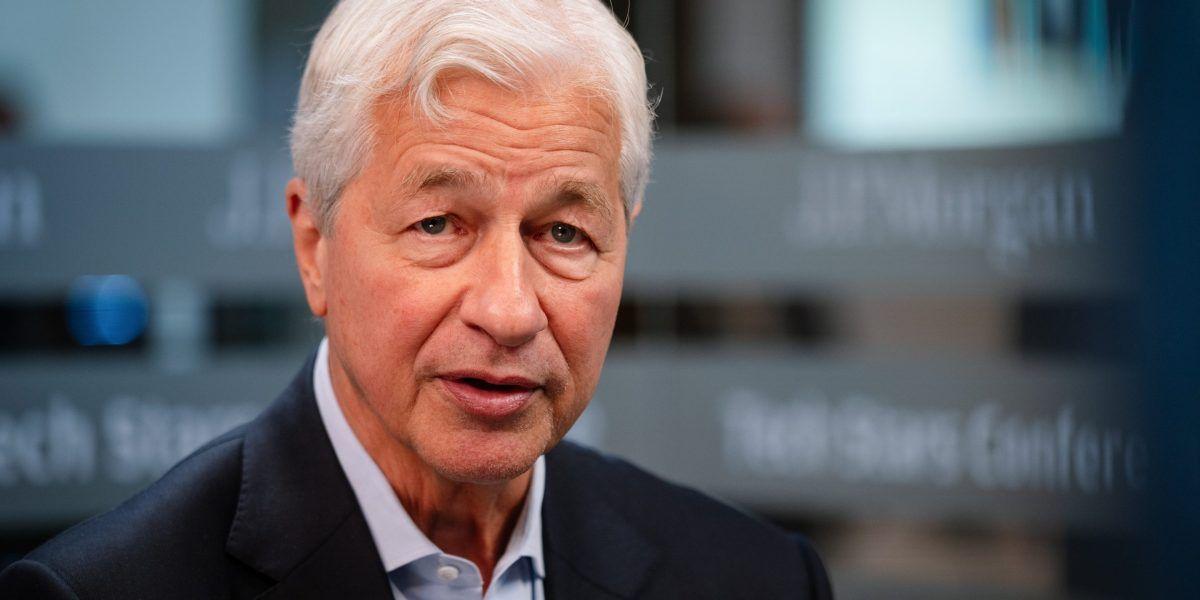
Jamie Dimon's AI Reality Check
JPMorgan Chase CEO Jamie Dimon has offered a sobering perspective on the current state of artificial intelligence (AI) and its impact on the economy. Speaking at the Fortune Most Powerful Women conference in Washington DC, Dimon shared his thoughts on the AI bubble, job disruption, and the technology's long-term potential
1
.AI: Real Technology, Potential Bubble
Dimon emphatically stated that "AI itself is real," acknowledging its transformative potential and enduring nature. He urged businesses to embrace AI, saying, "You should be using it." However, he drew a parallel to the early days of the internet, noting that while the technology was genuine, there were still bubble-like characteristics in the market
1
.The JPMorgan CEO made a crucial distinction between AI and generative AI, suggesting that some asset prices related to AI might be "in some form of bubble territory." Despite this caution, Dimon believes that AI will likely pay off in the long run, much like how the internet boom eventually led to the emergence of enduring companies like Google, YouTube, and Meta
2
.Job Disruption and Societal Impact
Dimon didn't mince words when discussing AI's potential impact on employment. "It will eliminate jobs," he stated, comparing the situation to historical technological disruptions like tractors and cars. He emphasized the rapid pace of change and urged society, government, and businesses to "figure out how we can save jobs" through retraining, new forms of income, or early retirement options
1
.The CEO warned of dire consequences if the job displacement issue is not addressed properly: "You can't just take all these people and throw them on the street ... making $30,000 a year when they were making ($150,000), you'll have a revolution"
1
.Related Stories
JPMorgan's AI Strategy
Under Dimon's leadership, JPMorgan has invested billions in AI and machine learning since 2012. The bank now has over 2,000 staff dedicated to AI and hundreds of applications in production. Dimon reported tangible benefits worth upwards of $2 billion in cost savings or new revenue streams
1
.JPMorgan has focused on applying AI to specific areas such as risk assessment, fraud prevention, marketing, and the analysis of complex legal documents. Dimon noted that AI adoption is sometimes hard to distinguish from pure procedural improvement, often resulting in significant headcount reductions in certain workstreams
1
.Call for Preparedness and Regulation
Dimon emphasized the need for proper preparation and regulation to manage AI's impact. "I do think there should be proper thoughtful regulations and guardrails to protect the public," he stated, referring to the need to be better prepared for potential job losses as AI becomes more prevalent across industries
2
.The JPMorgan CEO advised fellow executives to make ongoing investments in training and adaptation, saying, "Use it. Get good at it. Make it part of your tool set, your weapon set, and you'll learn. It'll get better all the time." JPMorgan has even begun sending managers to AI "master classes" to deepen their skills and broaden organizational expertise
1
.References
Summarized by
Navi
Related Stories
JPMorgan's Jamie Dimon Predicts AI Will Reduce Workweek to 3.5 Days While Maintaining Employment
06 Nov 2025•Business and Economy
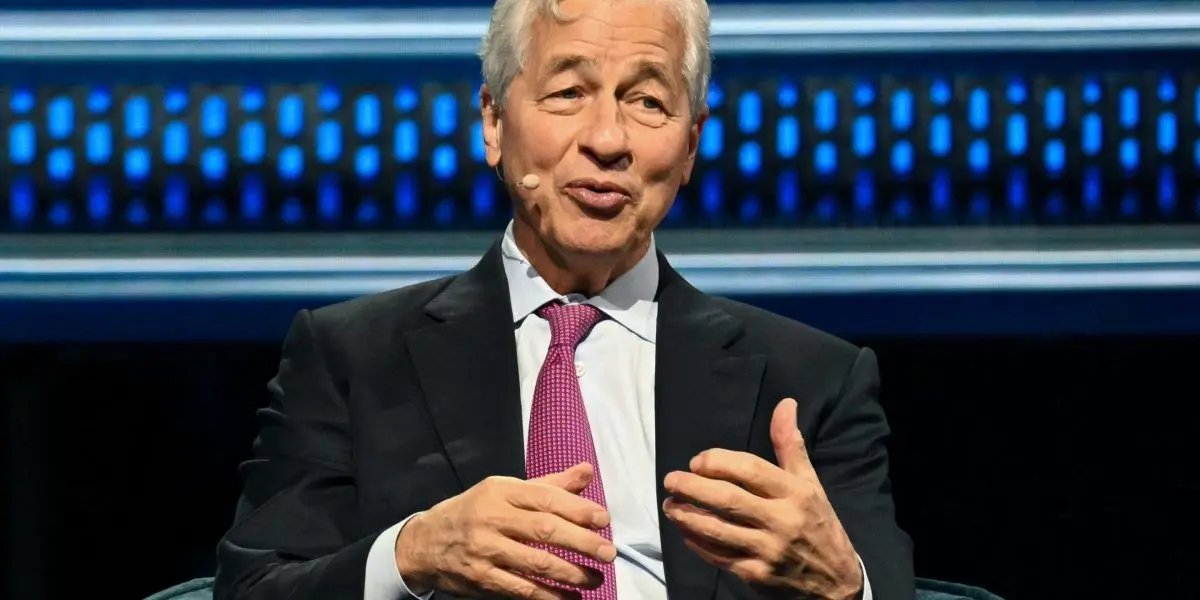
Jamie Dimon warns AI rollout may need to slow down to prevent civil unrest and job disruption
22 Jan 2026•Business and Economy
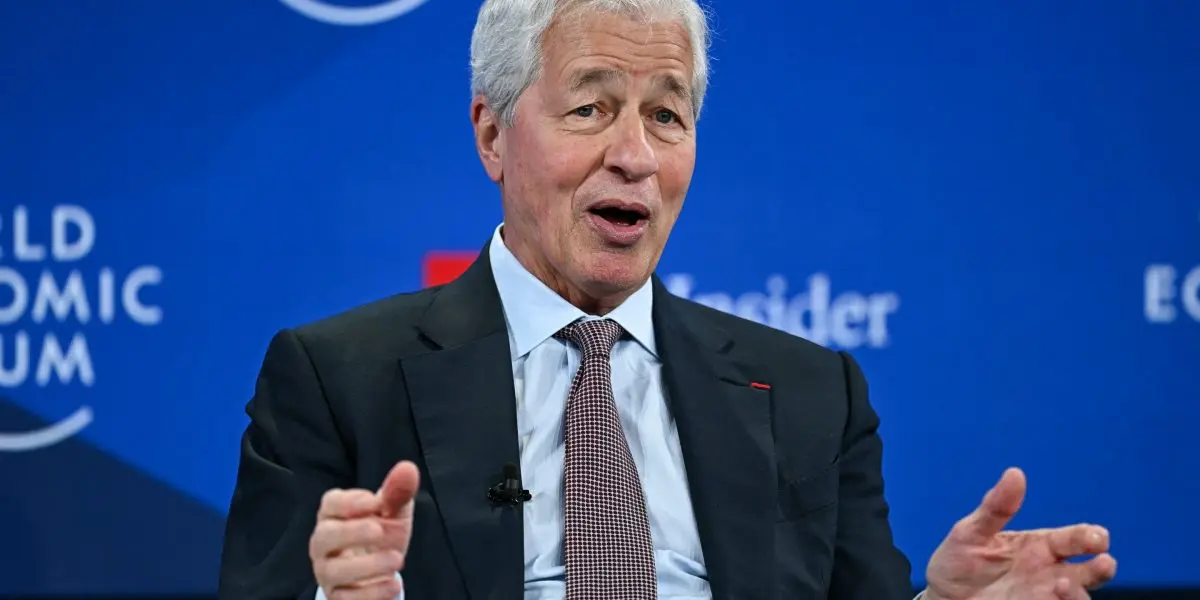
OpenAI Walks Back Government Bailout Comments Amid $1.4 Trillion Infrastructure Push
06 Nov 2025•Business and Economy

Recent Highlights
1
Google Gemini 3.1 Pro doubles reasoning score, beats rivals in key AI benchmarks
Technology

2
Pentagon Summons Anthropic CEO as $200M Contract Faces Supply Chain Risk Over AI Restrictions
Policy and Regulation

3
Canada Summons OpenAI Executives After ChatGPT User Became Mass Shooting Suspect
Policy and Regulation

